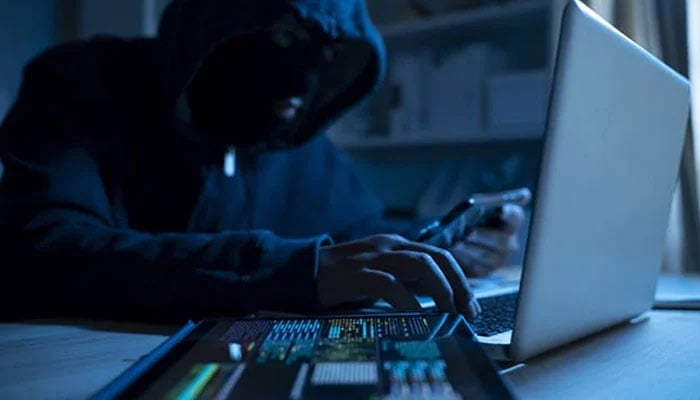Select Language:

WASHINGTON: Hackers believed to be associated with Iran have threatened to release additional emails obtained from individuals in President Donald Trump’s circle, following the distribution of a previous set to the media prior to the 2024 U.S. election.
In conversations with Reuters over the weekend, the hackers, who use the alias “Robert,” claimed to possess roughly 100 gigabytes of emails sourced from the accounts of White House Chief of Staff Susie Wiles, Trump’s attorney Lindsey Halligan, adviser Roger Stone, and adult film star-turned-Trump critic Stormy Daniels.
While Robert suggested they might consider selling the data, no specific plans were divulged. The group did not disclose the details within the emails.
U.S. Attorney General Pam Bondi labeled the hacking incident as “an inexcusable cyber-attack.”
Both the White House and FBI have stated that individuals involved in any breach of national security will face thorough investigations and severe penalties, according to FBI Director Kash Patel.
No responses were received from Halligan, Stone, Daniels’ representative, or the U.S. cybersecurity agency CISA. Iran’s mission to the United Nations also declined to comment, with Tehran previously denying any participation in cyber espionage.
The hacking group Robert emerged during the closing weeks of the 2024 presidential campaign, claiming to have hacked the email accounts of several Trump associates, including Wiles, and later distributed select emails to journalists.
Reuters had previously verified some of the leaked information, which included an email indicating a financial agreement between Trump and the lawyers of former presidential candidate Robert F. Kennedy Jr., who is now Trump’s health secretary. Further leaks encompassed internal communications regarding Republican candidates and discussions about legal settlements with Daniels.
Although the leaks garnered some press coverage last year, they did not significantly alter the outcome of the presidential election, which Trump won.
In September 2024, the U.S. Justice Department accused Iran’s Revolutionary Guards of orchestrating the Robert hacking scheme. The hackers chose not to address these allegations.
After Trump’s victory, Robert informed Reuters that no further leaks were anticipated, stating in May, “I am retired, man.” However, activity resumed following this month’s 12-day conflict between Israel and Iran, which resulted in U.S. strikes on Iran’s nuclear facilities.
This week, Robert indicated they were preparing to sell the stolen emails and urged Reuters to convey this matter.
Frederick Kagan, a scholar at the American Enterprise Institute and an authority on Iranian cyber activity, remarked that Iran’s intelligence services might be looking to retaliate without escalating military tensions. “A likely explanation is that everyone’s been instructed to utilize all available asymmetric tactics without provoking a major military response from Israel or the U.S.,” he noted. “Releasing more emails is unlikely to trigger such a response.”
While there were concerns about potential serious cyberattacks from Iran, the hackers remained mostly inactive during the recent conflict. However, U.S. cyber officials issued a warning on Monday that Tehran might still target American businesses and critical infrastructure.





